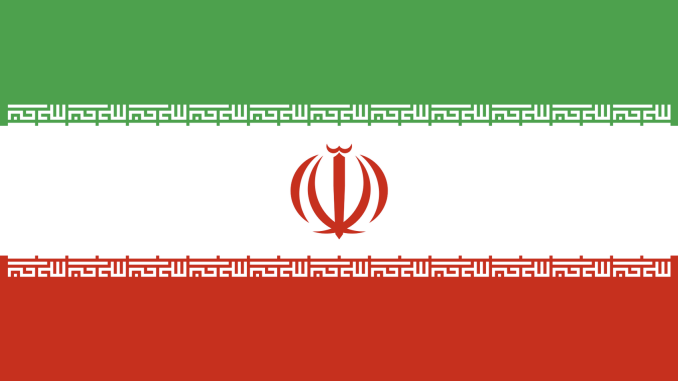Peloni: As the world has sat back demanding to know what the day after in Gaza would bring, they should have instead been contemplating what the day after in Iran would bring. The day in which the question regarding Iran’s future needs an answer may be fast approaching, and that answer will have reverberations most acutely affecting the regional Iranian proxies which might or might not still exist in Gaza, Lebanon and Yemen, while also affecting the entire region and much of the world.
Ambassador (ret.) Yoram Ettinger, “Second Thought: a US-Israel Initiative” | April 3, 2025

*Does US policy toward Iran refrain from – or repeat – past mistakes?
*The diplomatic option (negotiation and containment) is effective when conducted between parties, which consider negotiation as a step toward peaceful coexistence. However, as evidenced by its 46-year-old rogue track record (since toppling the pro-US Shah), the Ayatollah regime – just like ISIS, the Muslim Brotherhood, Hamas, the PLO/PA and Hezbollah – has employed negotiation as a tactic to advance its aim to topple the “apostate” Sunni regimes and bring the “infidel” West to submission.
*Will the US sustain the 46-year-old self-destructive diplomatic option toward the Ayatollah regime, ignoring the fact that the latter is driven by a 1,400-year-old fanatical, religious ideology that transcends financial and diplomatic consideration, and mandates the toppling of all “apostate” Sunni regimes, and bringing the Western “infidel” – especially “the Great American Satan” – to submission?
*The diplomatic/negotiation option has played a key role in transforming Iran from “The American Policeman of the Gulf” into the leading global epicenter of anti-US wars, terrorism, drug trafficking, money laundering and the proliferation of advance military systems from the Persian Gulf, through the Middle East, the Horn of Africa, North and West Africa to Latin America and US soil.
*The diplomatic/negotiation option has been a clear and present threat to the survival of every pro-US Arab regime, the pro-US regimes in Latin America and – according to the FBI – to US homeland security.
*Will the US ignore the reversibility (short term effectiveness) of maximum-pressure-economic-sanctions, which (temporarily) limited the rogue capabilities of Iran, but failed to detach it from its fanatical vision and moderate its conduct?
*The Ayatollah regime views US Presidents as a temporary historic episode, while the Ayatollah regime is eternal by divine right. Hence, Iran has prolonged any negotiation process, willing to hunker down, shift to a lower gear and postpone policy achievements, awaiting to a more accommodating President, prepared to shift to a higher gear, and resume the pursue of their fanatical ideological goals.
*The failure of the 46-year-old diplomatic option, and the 40 year old economic sanctions, exacerbated by the reluctance to engage in regime-change, paves the road to the possible emergence of the first ever apocalyptic, megalomaniacal, nuclearized regime, with its terror arms stretched from the Middle East, through Africa to Latin America and US soil.
*Western reluctance to engage in regime-change serves as a decisive headwind to the majority of Iranians who yearn for a regime change, and a tailwind to the oppressive Ayatollah regime.
*Iran’s domestic opposition is aware that regime-change is preconditioned upon game-changing external involvement, as it was in 1978/79, when the US brutally pressured the anti-Ayatollah Iranian military to refrain from stopping Ayatollah Khomeini’s rise to power. Moreover, external US-British involvement played the key role in the 1953 regime-change, which toppled Iranian Prime Minister Mohammad Mosaddegh’s government, and restored the monarchy of the Shah. On the other hand, the absence of external involvement was responsible for the failure of the 2009 and 2022 attempts by the opposition to topple the Ayatollah regime.
*Refraining from regime-change is perceived as weakness by rogue regimes. It undermines the US’ posture of deterrence, whets the appetite of Islamic terrorism, undermines the stability of all pro-US Arab regimes and US’ homeland security, and expands the prospects of war and terrorism.
*On the other hand, the realization that the Ayatollah regime is not a partner to negotiation, but a target for regime-change, would reflect decisiveness in the face of threat, bolstering the US’ posture of deterrence, eliminating the leading epicenter of global anti-US Islamic terrorism, and advancing liberty for all Iranians. By removing the Ayatollah’s machete from the throats of its Sunni Arab neighbors, thereby reducing global war and terrorism, minimizing the Saudi, the UAE and Egyptian courting of China and Russia, and inducing Saudi Arabia to join the Abraham Accords, possibly followed by Indonesia, Oman and even Kuwait.
*In 2025, the conventional military capabilities of the Ayatollah regime constitute the leading epicenter of wars and terrorism, anti-US terrorism, drug trafficking, money laundering and proliferation of advanced military systems, as well as an imminent threat to all pro-US Arab regimes. For example, Iran’s success in toppling the pro-US Hashemite regime would transform Jordan into a major platform of anti-US Islamic terrorism, triggering a volcanic ripple effect in the Arabian Peninsula area (48% of global oil reserves), bolstering anti-US global Islamic terrorism.
*Comparing regime change in Iran to previous attempts in Afghanistan and Iraq, ignores the vast differences between them, ethnically, culturally, politically and educationally. In fact, Iran’s population is much more prone to a positive alternative regime.
*Refraining from regime-change would pave the road to an apocalyptic and nuclear Iran, which would result in catastrophic economic and human life cost, that would dwarf any cost currently required by regime-change.



Leave a Reply
You must be logged in to post a comment.